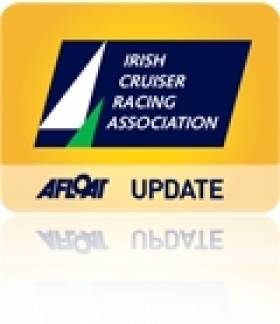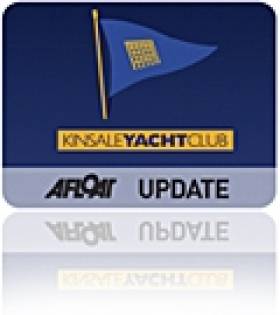Displaying items by tag: Peter Morton
Cruiser Racers Head for Royal Cork
Simon McGibney of WIORA confirmed there are already at least 15 boats interested in travelling to the event to join with the Cork, Kinsale and East coast boats. There is also the tantalising prospect of the fleet being joined by no less than ten quarter tonners from the UK who also plan to sail in the Sovereign's Cup at Kinsale the following week. Most of these British boats are crewed by professionals and will race with the Irish Class three fleet. They will, however, be scored separately and will receive a separate trophy.
Sailing with the Quarter Ton fleet will be Anchor Challenge, beautifully restored and modified by former owner Peter Morton, and now in the ownership of Eamon Rohan. At the weekend our spy spotted an all white gleaming boat wending its way up the Kinsale Road and wondered could this possibly have been Anchor Challenge and, if so, will we see a battle between the all black Tiger and the all white newcomer??
For the duration of the ICRA National Championships there will be subsidised launching at Ringaskiddy for all trailerable boats. In addition a very attractive accommodation package has been arranged for all ICRA competitors at the Carrigaline Court Hotel. They are offering three nights B/B plus one evening dinner from Thursday to Saturday and free B/B for Sunday night at €129 per person sharing.
A crew list has been set up by RCYC for skippers wishing to acquire crews with local knowledge and Race Officers for the event will be the hugely experienced Peter Crowley and Richard Leonard.
ICRA Commodore Barry Rose was delighted to inform the meeting that Yacht Designer Mark Mills has joined the ICRA committee where his expertise and wide knowledge will be greatly appreciated. Mark gave a most interesting report on recent developments re racing matters. One item referred to the fact that boats with bulb keels will now be more severely rated and another item of interest is discussion going on with regard to changing the rating bands for the 2012 Commodores Cup. It is believed there is a move afoot to lower the bands i.e. the current middle rated boat may be the big boat for the 2012 event.
Quarter Ton Class Returns to Sovereigns Cup
The Quarter ton fleet is sailing back to the Sovereigns Cup in 2011. The event runs in Kinsale from June 22-25th.
The Quarter ton fleet made its debut at the 2009 event where a total of seventeen boats competed for the 'Keane's Jewellers perpetual Quarter Ton trophy'. Boats travelled from all over Ireland for the event with seven boats making the journey from the UK.
The four-day regatta was sailed on windward leeward courses, with one coastal race along the beautiful West Cork coastline. The coastal race proved memorable as the fleet short tacked their way along the shore to gain tidal relief in twenty knots of breeze and blazing sunshine with the race culminating in a long planning run back towards the mouth of the harbour.
After eight races the Cowes based yachtsman Peter Morton on 'Anchor Challenge' won the event on count back from Rob Gray's beautifully presented 'Aquilla' which was testimony to the close racing experienced within the fleet. The Ron Holland prize for best production boat was awarded to Kinsales' Ian Travers on his Bolero 'Bandit'.
The inclusion of the class in the 2009 regatta developed a lot of interest both during and after the event. Since then the Irish Quarter ton fleet has developed with the addition of some new boats with others currently undergoing refit for next season. With the recent announcement by the Quarter ton class in the UK to yet again include this event on their calendar for next year, it is highly likely that even in these recessionary times, the class numbers will grow for this truly enjoyable event. (See www.quartertonclass.org )
If you are interested in bringing your quarter tonner to Sovereigns Cup 2011 please contact Ian Travers @ +35387 9481576 or [email protected] or see HERE for further details.






























































